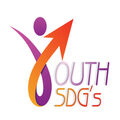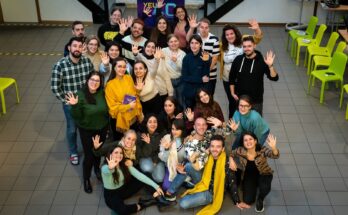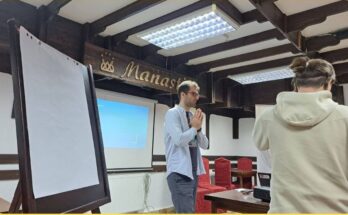The problem of cyberbullying is especially relevant in the age of the Internet and social media. Young people are increasingly proficient in the use of the Internet and the tools it offers, which has been made clear with the transfer of most activities, including teaching and social events, to the online sphere.
The KidActions project intends to respond to the problem of cyberbullying by raising awareness of this issue and creating pedagogical games designed to empower young people to recognize and respond to cyberbullying. In order to achieve these goals, two focus groups were organized as part of the research methodology of the project.
YEU organized one focus group in Brussels on April 29th, 2021. This focus group was held online due to the pandemic situation and the public health restrictions in Belgium. Nonetheless, the focus group was international in character, counting with the participation of thirteen individuals, including educators and youth workers, from twelve European countries. The discussion was semi-structured and intended to provide answers that would strengthen the research and, ultimately, the outcomes of the project. Namely, the focus group was intended to draw upon the prevention and response to cyberbullying, the resources, and digital tools for preventing and responding to cyberbullying, and the programs and approaches that could be effective in that prevention and response.
The participants in the focus group recognized the pressing importance of addressing the issue of cyberbullying among young people and develop effective strategies to understand, raise awareness, prevent, and respond to this growing problem. Providing the subjectivity that is inherent to cyberbullying, the focus group participants agreed on the need to come up with a definition that is agreed upon and clearly understood by young people. Further, both educators and youth workers agreed on the need to have community involvement when addressing this problem, recognizing that parents, educational staff, youth workers, and young people have a specific role in the prevention and response to cyberbullying. Lastly, education was highlighted as a priority for effective prevention and response to this issue. According to the participants, it is essential to guarantee that adults and young people alike are not only knowledgeable on the topics of technology, digital tools, and the online world, but also on emotional, psychological, and social skills.
In sum, from the discussion during the focus group, we were able to comprehend some of the aspects that educators and youth workers prioritize and consider essential in dealing with cyberbullying among young people. One of the aspects emphasized by the participants was precisely the essential involvement of young people at all stages of the process – from understanding cyberbullying to the development and implementation of tools to respond to it. Certainly, if there is anything to take from this focus group, is that what is for young people must involve them – from policies and protocols to digital tools, everything needs to be done with young people.





